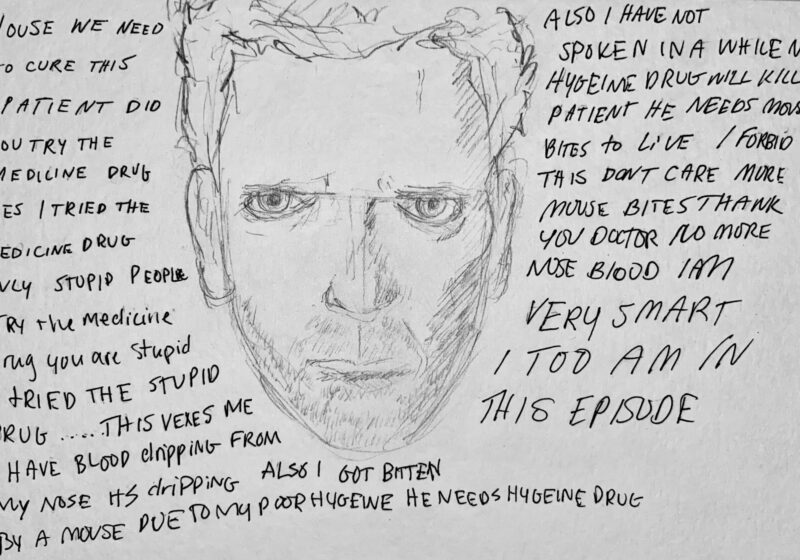Sex robots suck, opened junior Jacob Lowenherz.
“Literally,” he said. “And they vibrate. And some are even heated.”
Lowenherz represented UR Robotics at a debate held last Saturday afternoon by the Debate Union that probed the question of whether sex robots would do more harm than good.
Two first-years, Justyna Gorka and Mike Arinarkin, joined Lowenherz, arguing that sexbots would harm human-to-human relationships, perpetuate gender stereotypes, and isolate people who might already feel isolated.
“There will be this perpetuation of the human ideal sex partner,” Gorka said, mentioning a prediction from futurologist Ian Pearson that people would have more sex with sex robots than humans by 2050. “That’s not a healthy mentality to have in society, nor is it going to be good for body images because sex robots will perpetuate this ideal sex partner. They have ideal proportions, they never say no, they always orgasm. It’s all over an unrealistic expectation and standard that’s going to prevent people from actually wanting to go and have sex with human beings.”
Their opponents, sophomores Julia Liang and Bri Terrell and first-year Warish Orko, argued that sexbots were just another way to gain sexual pleasure, would help isolate gender stereotypes, and sexbots would help to reduce sexual crimes.
“The National Crime Agency estimates that at least 750,000 men in Britain are interested in having sex with children,” Liang said, explaining that some people view pedophilia as a sexual orientation. “Child sex robots can serve as the perfect alternative for those sexual orientations and keep our kids safe.”
Between each of the three arguments, the debaters had three minutes to ask their opponents questions. During this part of the debate, the debaters continually switched roles from being on the attack to being on the defense and back again. Much of the back-and-forth focused on human interaction and stereotypes.
“Under arguments about how [sex robots] create unrealistic expectations of beauty, how is that significantly different than the status quo that we already have?” Terrell asked at one point. “Wouldn’t you prefer that we actually have robots that can meet these expectations rather than projecting these expectations onto real life human women?”
Arinarkin shot back: “If anything, we want to destroy those expectations altogether, as opposed to just increasing that we’re saying that ‘that’s ideal beauty.’ Unless you can achieve that, you are no one. You should blame yourself.”
While no winner was declared, a poll was held both before and after the debate to see if attendees felt that sexbots did more harm than good. Before the debate even started, the initial audience, about two-dozen people, was close to equally divided on the issue.
Post-debate, however, over 70 percent of the approximately 40 people present agreed with the opposition.
Despite this, judges and students alike had questions for both sides of the argument. One of the judges, Professor Marie-Joelle Estrada, who teaches psychology, pointed out that while she enjoyed the debate, the debaters had primarily mentioned female sexbots for a male audience and not the other way around.
“I thought it was really interesting that we talked about sex robots for men, and we talked about that largely,” Estrada said. “Women tend to be the ones who are most sexually dissatisfied, the ones who don’t have orgasms nearly on par, even in the best-case situations with their male counterparts. I would be interested to see how the market [for male sex robots] would do, who would end up buying more.”
Ph.D. student Jerome Dent, another judge, said that he had hoped that there would have been more discussion on the general integration of sexbots into society and a comparison between the current sexual experience and what it could be in the future.
Dent also pointed out that while there had been talk on both sides about perpetuation and elimination of stereotypes of transgender people, it was also important to try and avoid even unintentionally perpetuating those stereotypes through word choice during the debate.
Members of the audience also had the opportunity to share their thoughts and questions on what was discussed during the debate.
“I didn’t hear that much discussion about asexuality,” sophomore Molly Robins said, noting a negative experience in a relationship because she is asexual. “In a society where everyone’s kind of having sex, there’s going to be people who are isolated because they don’t want that. Are there going to be romance robots for people whose sexual advances are the lack thereof?”
The well-attended debate drew people from beyond UR.
“As far as the topic goes, it is personally the thought of robots permeating this much into real life is saddening, depressing on a metaphysical level,” RIT first-year Prionti Nasir said. “But besides that, I can also see why, and I see the inevitability of them. As much as we debate, I don’t think there’s much to do. I think they’re going to be marketed into life. I’m sad about it, but there’s nothing to it.”
Several of the judges concurred with Nasir that sex robots were already becoming part of society, and one, Professor Ehsan Hoque, who teaches computer science and electrical engineering, said that it was time to look to where the technology would go in the future.
“I think sex robots are here to stay,” said Hoque. “We can regulate it. I think it’s coming. So the real question is, how […] do you design it so it’s good for humanity?”



